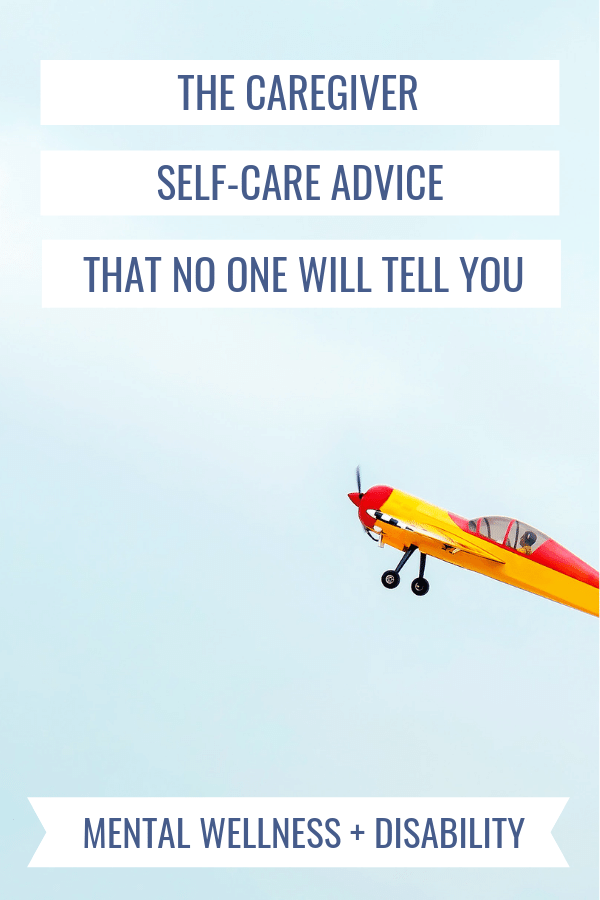Caregivers often come to counseling seeking self-care advice.
In fact, there’s a familiar flow to my first therapy session with a new client who is a caregiver. I welcome my new client to my office and offer them a bottled water or a cup of tea. Then my new client will settle in and I’ll answer any questions they have for me.
After this I’ll ask them what it is that they’re hoping to achieve from counseling. I invite them to tell me their story.
They describe that their parent or partner had a major medical event or was in an accident. They tear up when they talk about not having appreciated the life they had before that day. My clients talk about the physical, emotional, and mental toll that this ‘new normal’ has taken on them.
Maybe what they talk about next resonates with you if you’re caring for a loved one who has become disabled.
You realize that you cannot continue to push ahead in the same way that you have been. It’s breaking you. You feel irritable, overwhelmed, and anxious. You’re exhausted.
My counseling clients who are caregivers will say that they’ve come to see me to learn new self-care strategies.
Usually at this point they will look at me and ask “So, can you give me some ideas? What do you think I should do?”

The one thing that no one tells caregivers about self-care
This is the part where I tell them that it isn’t what they do to care for themselves that is important. What matters much more is why they are doing it.
I explain that this mindset shift is what no one talks about when they talk about self-care for caregivers.
The internet is full of thousands of lists and articles brimming with self-care strategies. You’ve probably seen the type, 1001 things to make you feel better when you’re stressed, and the like.
My caregiver clients are wise, warm, wonderful people. They are task attackers. I know that if the solution to their problem was as simple as checking off a list, they wouldn’t need the support that they seek in counseling.
I know that my caregiver clients are not stressed because they
- Haven’t found the right calendar or to-do list system
- Can’t get their loved one’s therapies on a consistent schedule
- Haven’t hired a reliable personal care aide
- Are making costly and confusing home or vehicle modifications
What’s really keeping them stuck in worry, and exhaustion, and sadness is at once much simpler to articulate and much harder to resolve.
It is the belief they should put all their energy into caring for someone else, without committing to caring for themselves. They have fallen into the trap of believing that their own care can wait. Or worse, that they can forgo self-care completely.
As a caregiver, you must prioritize your own self-care
More than this, caregivers must commit to the belief that caring for themselves is more critical than caring for their disabled loved one.
Most caregivers struggle with meeting their own needs first. Even when they do use precious time and energy to care for themselves, they are often so burdened by guilt that it doesn’t feel worth it.
You must believe that it is essential to care for yourself first. You must know with your whole mind and your full heart and you cannot meet your loved one’s needs if your own needs are not being met first. Believing this is what allows you to see that caring for yourself is not a luxury, but a necessity. It is not something to feel guilty about. It is something you must learn to do automatically, without question.
It’s like the safety warning you’ve heard countless times on airplanes.
The oxygen light has lit up. It’s time to decide whose mask you will put on first.
It must be your own.
If you’re a caregiver and you’ve wondered if therapy can help, that may sound like a difficult mindset shift.
I get it.
You’ve devoted all of your mental and physical energy to caring for your disabled loved one.
To say that what will help you both the most is for you to divert some of that precious time and energy to making yourself feel better may sound ludicrous.
It may help to know that some researchers are starting to question the relationship between caregiver self-care and the ability to effectively care for others.
This article examined the self-care practices of family members caring for cancer patients with poor prognoses. The researchers found that “caregivers who engaged in fewer health responsibility, spiritual growth, interpersonal relation, and stress management self-care practices were associated with poorer performance in care-giving activities (i.e., competence, preparedness, and decision-making efficacy).”
Summary
If you’re a caregiver struggling with self-care, I hope that this advice resonates with you.
I also know that you may find it hard to make that important mindset shift. To know that self-care isn’t so much about what you do, it’s about why you’re doing it. It’s about the belief that you are worth caring for, even if you’re a caregiver.
Keep reading
Other posts you may be interested in
Eight Tips to End Your Marriage with Dignity After Your Spouse Becomes Disabled
When your spouse becomes disabled, your whole world changes in an instant. The plans you’d made for the future all crumble away. Suddenly, your life feels like an endless stream of doctor’s appointments and therapy groups. It may feel like you know longer really know...











